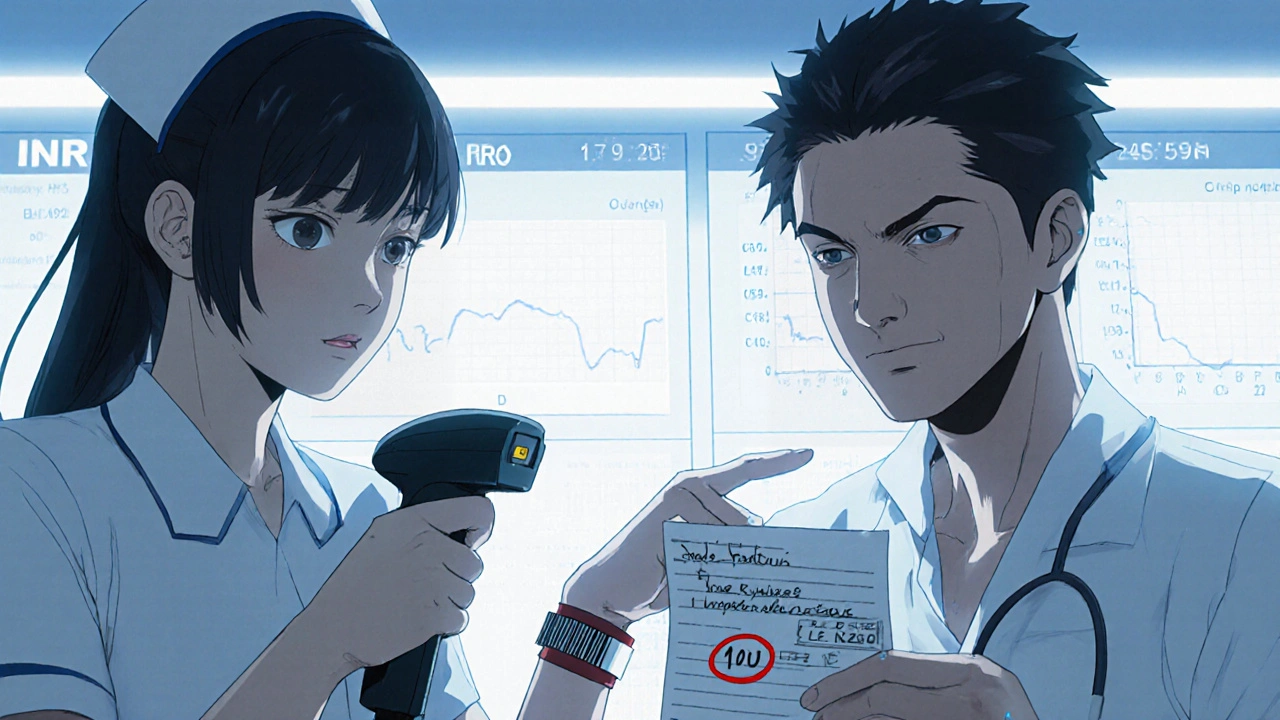Communication in Healthcare: Why It Matters More Than You Think
When you talk to your doctor about your meds, what you’re really doing is communication in healthcare, the exchange of clear, accurate, and timely information between patients and providers to ensure safe and effective treatment. Also known as healthcare dialogue, it’s not just small talk—it’s the line between getting better and getting hurt. A misheard dose, a misunderstood warning, or a skipped question about side effects can lead to real harm. Studies show that over 40% of medication errors stem from poor communication—not from the drugs themselves, but from how they’re explained, asked about, or remembered.
That’s why patient safety, the practice of preventing harm during medical care through clear processes and honest dialogue depends so heavily on how well information flows. Think about the person taking warfarin and worrying about their vitamin K intake. If their doctor just says, "Avoid greens," they might cut out spinach and then eat kale instead—unaware it’s the same issue. But if they’re told, "Keep your intake steady," and shown how to track it, they’re far more likely to stay safe. Same goes for people on GLP-1 agonists who need to recognize abdominal pain as a red flag for gallbladder trouble. Without clear warning signs explained in plain language, they might ignore it until it’s an emergency.
Then there’s health literacy, the ability to understand medical information well enough to make informed decisions. Many people don’t know what excipients are—those "inactive" ingredients in generics that can trigger allergies or stomach issues. If a pharmacist doesn’t explain that lactose or dye might be the problem, not the active drug, the patient blames the medication and stops taking it. That’s not noncompliance—it’s a communication failure. And when someone’s on multiple pills—like a fixed-dose combo for blood pressure and diabetes—they need to know why they’re taking it, not just that they’re told to. Otherwise, they’ll drop one, then another, and their condition spirals.
Good communication isn’t about fancy words or long consultations. It’s about asking: "What’s the one thing you’re most worried about?" It’s about checking if the patient can repeat back the instructions in their own words. It’s about listening when someone says, "I can’t afford this," and finding a real solution—not just handing them a sample. The posts below show how this plays out in real life: from how probiotics help with antibiotics to why steroid eye drops need strict monitoring. Every one of these topics fails without clear, honest, and repeated communication. You’ll find real cases, practical tips, and what actually works—not theory, not brochures, but what happens when people speak up, ask questions, and get answers they can use.
